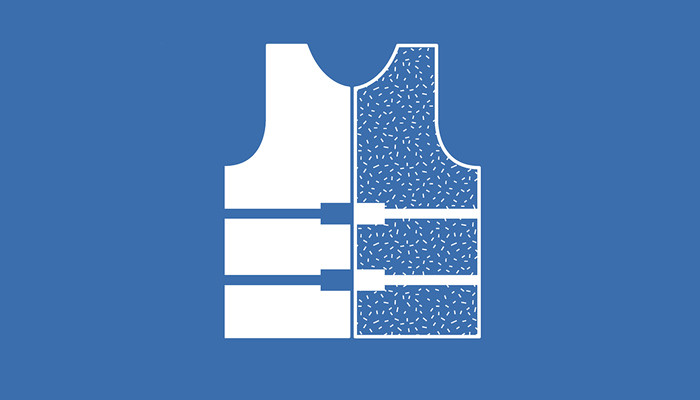Students aim to give Lift to Lesvos
A visit of four students to the Greek island of Lesvos is the latest example of the Sustainable Global Technologies programme being put into practice.

Imagine the population of Helsinki, unemployed, unfed and with no knowledge of the local language or culture, arriving on a small island with no urban infrastructure or facilities within the space of a year. That is what has happened on the Greek island of Lesvos, which has hosted more than half a million refugees between January 2015 and February 2016.
When four students from Aalto’s Sustainable Global Technologies (SGT) programme set off to Lesvos in March, their aim in happier times might have been to relax on the beach. But the beaches are clogged with a carpet of orange life-jackets, the debris left by the tens of thousands of refugees, mainly from Syria, making the short but perilous crossing in flimsy dinghies from Turkey.
The students are Faisal Al Barazi, who is a Syrian national, Oona Anttila, the group’s only Finn, Melanie Wolowiec from Germany and Canadian Eve Żórawska. Their brief from mentor Kristjana Adalgeirsdottir, Architect and Project Researcher at the Department of Architecture, is to work on solutions to alleviate the crisis and this has led them to Lesvos. The multidisciplinary SGT programme is coordinated by Professor Olli Varis at the School of Engineering.
Pooling their cross-disciplinary interests in sustainability, encompassing architecture, planning, business and urban transitions, the team devised The LIFT Project to focus on how they could make a difference. The project title expresses its three main aims: to physically lift the life jackets and clean the debris from the beaches; to develop recycling ideas to lift the jackets into new uses; and to lift the European attitude towards a more sympathetic and positive view of the refugees.
“Apart from anything else, the drop in tourism by as much as 80% is a huge problem for local people,” says Oona Anttila. “There has been talk about giving the Greek islanders the Nobel Peace Prize for helping the refugees. They say they don’t need any prizes – they just want the tourists to return.”
The team have coordinated their visit with the Lighthouse Relief NGO and a number of local volunteer coalitions working to recycle the mountains of life jackets piling up on and near the beaches. “It’s a problem to know what to do with the jackets,” says Eve Żórawska. “In a way it’s a metaphor for the whole crisis and the attitude of Europe to the economic and social issues of handling the refugees. My main concern is that we should not be too naïve and expect to solve all the problems.”
“We’ve had to focus more on certain ideas because we started on such a broad scale,” says Melanie Wolowiec. “We’re hoping that we can come up with more specific solutions as a result of this visit.”
“You see issues in the media and when you go there and see it first-hand it’s a completely different experience,” says Faisal Al Barazi, whose linguistic and ethnic connections with the Syrian refugees make this an especially poignant visit. “From here, you see the issue of the jackets as an issue of waste. When you go there, I think you connect with it more as a human issue.”
Watch this space for more news of LIFT, and follow the Lift Project’s progress on Facebook: www.facebook.com/liftlesvos/.
Text: Tim Bird
Photos: LIFT project


